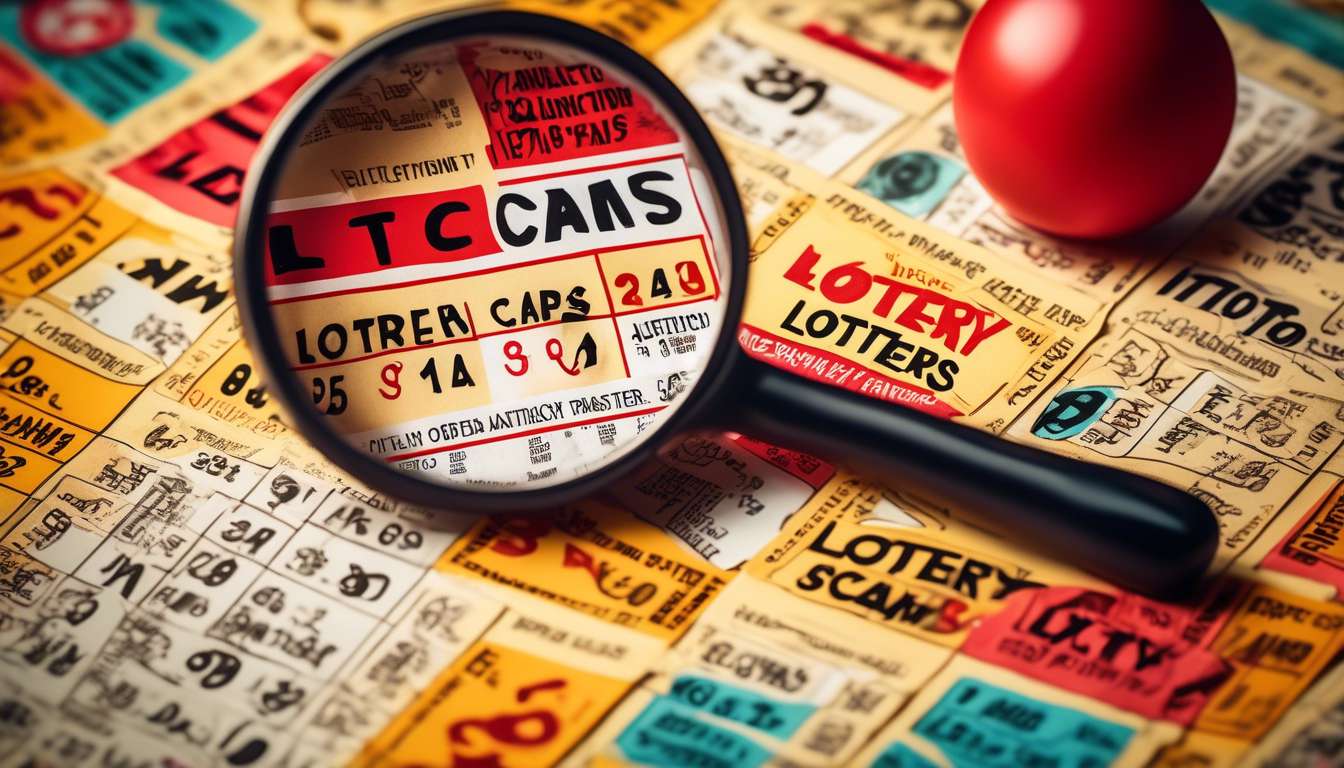Navigating Lottery Gambling Laws Across the U.S.
As avid participants in the thrilling world of lottery games, we’ve all wondered about the intricate web of gambling laws that differ from state to state. Navigating this complex legal landscape can feel daunting, but it’s essential to understand the rules that govern our favorite pastime.
Understanding State Lottery Laws
In this article, we delve into essential information about lottery gambling laws across various states in the U.S., aiming to demystify the regulations that impact our chances of striking it rich. Our journey will uncover diverse approaches taken across the nation, from states that embrace lotteries to fund education to those imposing stricter regulations.
Benefits of Understanding Lottery Regulations
By understanding these laws, we empower ourselves to:
- Participate responsibly
- Make informed decisions
Join us as we explore the fascinating legal frameworks that shape our lottery experiences. This ensures we’re all equipped with the knowledge we need to play smartly and legally.
Overview of State Lottery Regulations
State lottery regulations vary widely across the U.S., reflecting each state’s unique legal framework and approach to gambling. Each state’s set of gambling rules ensures that residents participate responsibly and within legal boundaries. This diversity in regulations shapes our experiences with lottery games.
Lottery Game Variations Across States:
- Some states permit multiple lottery games.
- Others may limit options to maintain stricter control.
These differences influence how we engage with lotteries, whether as casual players or dedicated participants. Recognizing the diversity in lottery regulations allows us to appreciate each state’s tailored approach to balancing revenue generation with social responsibility.
Our community’s shared curiosity drives us to explore these varied state laws and their impact. By gathering insights, we foster a sense of belonging as we navigate the unique landscape of lottery regulations. This ensures that we all play by the rules while enjoying the thrill of the lottery.
Lottery Laws in New York
In New York, we’ve got a well-established lottery system that offers a variety of games while ensuring compliance with the state’s stringent gambling laws.
Community Contribution:
- Our lottery isn’t just about luck; it’s about community and contributing to education, as a portion of the revenue supports our schools.
- When we buy a ticket, we’re part of something bigger, following the state laws that guide our participation.
Regulation and Oversight:
- Lottery regulations here are comprehensive.
- The New York State Gaming Commission oversees everything, ensuring fair play and integrity.
Types of Games:
- We can choose from games such as:
- Mega Millions
- Powerball
- Scratch-offs
- Each game follows specific gambling rules, designed to protect us and maintain a level playing field.
Age Restrictions:
- Only those 18 and older can play lottery games.
- Casinos have a higher age requirement.
This ensures that everyone participating understands the responsibilities tied to gambling. Together, we enjoy the thrill of the lottery while respecting the regulations that keep us safe and connected.
Understanding California’s Gambling Laws
In California, gambling laws are designed to govern everything from lotteries to casinos, ensuring fair play and protecting consumers. These laws create a safe and regulated environment where everyone can enjoy gaming responsibly. Understanding these laws helps individuals make informed choices and feel connected to their community.
Lottery Regulations:
- The California State Lottery Act of 1984 established the framework for how lottery funds are allocated and managed.
- A significant portion of lottery proceeds supports public education, which is a point of pride for many Californians.
- The rules specify permissible game types, ensuring transparency and fairness.
Casino Operations:
- California has strict guidelines for casino operations, with a significant focus on tribal casinos.
- These regulations promote trust among patrons and ensure that leisure activities are enjoyed without concern.
By staying informed and engaged with these laws, Californians can continue to participate in gambling activities responsibly and with confidence.
Texas Lottery Regulations Explained
In Texas, lottery regulations are uniquely designed to maximize transparency and benefit public programs. Our state laws ensure that gambling rules are clear and fair, fostering a sense of community trust.
We collectively understand that the Texas Lottery isn’t just about playing a game; it’s about contributing to our schools and veterans’ assistance programs. By participating, we’re directly supporting these causes, which gives us a shared purpose.
The Texas Lottery Commission plays a crucial role in maintaining the integrity of the games. They oversee everything from ensuring compliance with state laws to setting up gambling rules that prioritize fairness, ensuring everyone has an equal chance.
We appreciate that our state takes these precautions, as it strengthens our confidence in the system.
Moreover, revenue transparency is key. We’re regularly updated on how funds are allocated, which reinforces our belief in the positive impact we’re making.
It’s truly rewarding to know our participation benefits the broader Texas community.
Florida’s Approach to Lottery Gambling
Florida takes a multifaceted approach to lottery gambling, focusing on both entertainment and funding educational initiatives. As we explore Florida’s strategy, we see how state laws and lottery regulations intertwine to create a system that’s both fun and beneficial to our community.
By participating in the lottery, we not only get a chance to win exciting prizes but also contribute to vital educational programs. This sense of shared purpose helps us feel more connected as Floridians.
The state’s gambling rules ensure that the lottery operates fairly and transparently, giving us confidence in the process. Florida’s lottery regulations are designed to maximize revenue while minimizing potential issues associated with gambling.
Key components of Florida’s lottery strategy include:
- A significant portion of lottery proceeds going towards education.
- Funding scholarships and school infrastructure over the years.
This approach makes us proud, knowing our participation supports future generations. Together, we can enjoy the thrill of the lottery while strengthening our community’s educational foundation.
Illinois Lottery Laws Unveiled
In Illinois, we uncover a dynamic lottery system where a significant focus is placed on transparency and responsible gaming. Our state laws are designed to ensure that everyone feels included and protected in the gaming community.
The lottery regulations emphasize the importance of fair play and integrity, making sure that every participant has a clear understanding of the rules.
We’re proud that our gambling rules prioritize responsible gaming by offering support and resources for those who might need help. The Illinois Lottery is more than just a game; it’s a community that values trust and fairness. We work diligently to maintain a system that’s not only fun but also safe and transparent for all.
Together, as part of this collective, we benefit from the lottery’s contributions to public education and infrastructure. By adhering to these state laws, we create an environment where lottery gaming is both enjoyable and beneficial to our community’s growth and development.
Pennsylvania’s Stance on Lottery Gaming
In Pennsylvania, we prioritize a strong commitment to responsible gaming, ensuring that the lottery system is fair, transparent, and beneficial for all participants. Our state laws and lottery regulations are designed not just to protect players, but also to foster a sense of community and belonging among us. We understand that when you partake in the lottery, you’re not just playing a game—you’re contributing to something larger.
Our gambling rules are straightforward and accessible, reflecting our dedication to transparency. We regulate the lottery to ensure that it aligns with the values and expectations of our community, providing clear guidelines to prevent any misuse or abuse.
The Pennsylvania Lottery is committed to generating funds that support programs benefiting older residents, and we take pride in the positive impact it has on our society.
By adhering to these structured lottery regulations, we ensure that everyone can participate confidently, knowing they’re part of a well-regulated system that values fairness and integrity.
Comparing Lottery Rules Across States
While each state has its unique approach to lottery regulations, there are some common themes that highlight our shared commitment to fair and responsible gaming. We all strive to create a balanced system that protects players while supporting state initiatives.
Age Restrictions:
- Some states have age restrictions set at 18.
- Others require players to be 21.
These differences reflect variations in state laws and cultural attitudes toward gambling.
Transparency and Use of Proceeds:
- Many states ensure transparency in how lottery proceeds are used.
- Funds are often directed to education or public services.
This approach not only promotes trust but also fosters a sense of community, as contributions serve a greater purpose.
Preventing Addiction and Fraud:
- States enforce strict gambling rules to prevent addiction.
- Measures are in place to prevent fraud.
These regulations ensure that everyone can enjoy the lottery safely.
By comparing these state laws, we can see our collective efforts to uphold integrity and responsibility in lottery gaming, reinforcing our connection as a community committed to ethical entertainment.
How can lottery winnings affect my tax obligations in different states?
Winning the lottery can impact our tax obligations differently across states.
It’s crucial to understand how lottery winnings are taxed in each state to ensure we comply with tax laws.
Some states tax lottery winnings at a flat rate, while others may have no state tax at all.
By being aware of these variations, we can plan accordingly and avoid any surprises come tax season.
-
States with flat rate taxes: These states apply a consistent percentage to lottery winnings, regardless of the amount.
-
States with no state tax: Some states do not impose any tax on lottery winnings, which can significantly increase the amount you take home.
Understanding these differences is essential for effective financial planning and ensuring compliance with all tax obligations.
What are the age restrictions for participating in lotteries across various states?
Age Restrictions for Lotteries
In different states, age restrictions for participating in lotteries vary. It’s crucial to know the legal age required to buy lottery tickets or claim winnings to avoid any issues.
Key Points:
- Checking the specific rules in your state is essential.
- Some states may require participants to be 18, while others may set the age at 21.
Why It’s Important:
Understanding these regulations ensures compliance and a smooth lottery experience.
Are there any states where online lottery ticket purchases are legal?
Yes, there are several states where online lottery ticket purchases are legal. It’s convenient and allows us to participate in the lottery from the comfort of our homes.
This option brings accessibility and ease to our lottery experience. We appreciate the flexibility that online purchases offer, making it simpler for us to engage in the excitement of playing the lottery.
Conclusion
In conclusion, each state has its own set of regulations governing lottery gambling, creating a varied landscape of rules and restrictions.
From New York to California, and Texas to Florida, understanding the laws is crucial for both players and operators.
By comparing and contrasting the lottery rules across different states, one can gain a comprehensive view of the diverse approaches taken towards this form of gaming.
Key Points:
- Each state has unique lottery regulations.
- Awareness of these laws is crucial for:
- Players
- Operators
Stay informed and play responsibly within the legal framework of your state.




